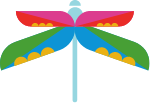In this Article:
Embarking on a job search can often feel like stepping into an overwhelming labyrinth. With numerous paths ahead, it can be tricky to decide which one to tread on. But what if you had a compass to guide you? Something that can help you navigate this vast jungle with a little more certainty? Today, we’re going to talk about that magical compass—career clusters!
Career clusters are like signposts that point you toward the paths most suited to your skills, interests, and dreams. They’re a fantastic tool to help job seekers, students, and even seasoned professionals understand the contemporary job market’s landscape and make informed decisions about their career trajectories. So let’s dive in and discover how you can use career clusters to find your way to a fulfilling job and career. Fasten your seatbelts; it’s time to embark on an enlightening journey!
What are career clusters?
Career clusters are groups of similar occupations in the same field of work that require similar skills. They provide an organizing tool that you can use to dive into the world of work and explore a wide range of career options, even some you might not have heard of before!
But that’s just a definition – let’s put it into perspective. Imagine a giant map of all the jobs in the world—it’s quite a sight, isn’t it? Now, think of this map neatly sorted into 16 groups, with each group containing occupations that have something fundamental in common. These groups are what we call career clusters.
Career clusters originated from a desire to bridge the gap between education and career, helping students see how their learning applies to the world of work. Introduced by the U.S. Department of Education as a National Career Clusters® Framework, these clusters provide a way for schools to organize instruction and student experiences around sixteen broad categories that encompass virtually all occupations from entry through professional levels.
Each cluster represents a distinct grouping of occupations and industries based on the knowledge and skills they require. For instance, if you’re a tech whiz and love solving problems, the “Information Technology” career cluster could be your perfect fit, containing job opportunities like software development, network administration, and cybersecurity.
But it’s not just about finding where you fit right now; career clusters are also about where you could fit in the future. They provide a roadmap showing how early career experiences can lead to more opportunities as your skills and knowledge grow.
Why are career clusters important?
Think of career clusters as your personal career GPS! They’re a tool that can help you navigate the winding road of job hunting, refining searches when trying to find a job near you on a job listing site. Whether you’re just starting your job search journey or considering a mid-career change, career clusters can be an invaluable tool to help you make sense of the vast world of work. A few ways that an understanding of different career clusters can help:
1) Understanding the Job Market
Career clusters group similar jobs together, which makes it easier to understand the current job market and identify the areas with the highest demand or the most promising future outlook. It’s not a crystal ball, but it can be helpful to get a better sense of trends!
2) Guiding Education and Training
They can also guide your education and training decisions. Each cluster outlines the knowledge and skills required for occupations within the group, making it clear what education or training you may need to pursue in order to qualify for jobs in that cluster.
3) Career Planning
They can help you plan your career path more effectively. Each cluster provides a roadmap of potential career advancement opportunities, showing you how you can progress within your chosen field. You don’t have to follow an exact path; just like you might make changes to a recipe you find online to match your taste!
4) Self-Discovery
Exploring career opportunities and clusters can lead to a journey of self-discovery. As you explore various areas, you’re bound to learn more about your interests, skills, and career aspirations. You might even discover exciting jobs and careers you hadn’t considered before!
Career clusters can be used like a treasure map, leading you toward a fulfilling career. They’re not only about finding a job; they’re about carving out a career path that aligns with your interests, skills, and dreams.
What are the different career clusters?
There are 16 career clusters, each with its own set of exciting roles and pathways. Let’s take a brief tour of each one to get a sense of the variety they encompass:
- Agriculture, Food & Natural Resources: This cluster is all about producing, processing, marketing, distributing, financing, and developing agricultural commodities and resources. Think farmers, ranchers, veterinarians, and conservation scientists.
- Architecture & Construction: If designing, planning, managing, building, and maintaining the built environment sounds interesting, this is your cluster. Jobs include architects, carpenters, electricians, and construction managers.
- Arts, A/V Technology & Communications: Calling all creatives! This cluster is about designing, producing, exhibiting, performing, writing, and publishing multimedia content. This includes artists, musicians, journalists, and filmmakers.
- Business Management & Administration: This cluster involves planning, organizing, directing, and evaluating business functions. Jobs range from business analysts and administrators to human resource managers.
- Education & Training: If you’re interested in the process of teaching and learning, this cluster is for you. It includes teachers, counselors, and instructional coordinators.
- Finance: This cluster is focused on money management, including banking, investing, and insurance. Jobs include financial analysts, accountants, and insurance agents.
- Government & Public Administration: Here, you’ll find careers related to governance, national security, foreign service, and planning at the local, state, and federal levels.
- Health Science: This cluster includes careers related to promoting health and wellness, and diagnosing and treating injuries or illnesses. It encompasses doctors, nurses, therapists, pharmacists, and more.
- Hospitality & Tourism: If you’re interested in the management, marketing, and operations of restaurants and other food services, lodging, attractions, and travel-related services, this is your cluster.
- Human Services: This cluster is about meeting human needs and helping people live a more satisfying, productive life. Careers include social workers and psychologists and even encompass summer camp jobs such as counselors.
- Information Technology: This cluster involves design, development, support, and management of hardware, software, and multimedia. It includes software developers, network administrators, and cybersecurity analysts.
- Law, Public Safety, Corrections & Security: This cluster focuses on planning, managing, and providing legal, public safety, protective services, and homeland security. Careers range from lawyers and police officers to firefighters and security personnel.
- Manufacturing: This cluster involves the process of turning raw materials or parts into finished goods. Careers range from machinists and assembly line workers to quality control specialists and plant managers.
- Marketing: This cluster is about creating, communicating, and delivering value to customers and managing customer relationships. It includes marketing managers, market research analysts, and salespeople.
- Science, Technology, Engineering & Mathematics (STEM): This cluster is centered around planning, managing, and providing scientific research and professional and technical services. It includes scientists, engineers, mathematicians, and technicians.
- Transportation, Distribution & Logistics: Finally, this cluster involves planning, managing, and moving people, materials, and goods. Careers include truck drivers, pilots, logistics managers, and warehouse supervisors.
Each of these clusters offers a world of possibilities for you to explore. Remember, your ideal career path might not fall neatly into one cluster. Many of us have interests and skills that span multiple clusters, and that’s perfectly okay!
How to use career clusters to help plan your career or find your next job
Understanding career clusters is only half the battle; the other half is knowing how to use them to your advantage. This isn’t a daunting task, but a journey of exploration and discovery that can be both rewarding and enjoyable.
Start with a self-assessment. This means taking a good, hard look at yourself and identifying your interests, abilities, and values. Ask yourself what you’re truly passionate about. What responsibilities have you had in previous jobs that you gravitated toward, or shied away from? If you haven’t had a job before, what types of things do you like to do in your free time? This introspection can provide a guiding light toward the career clusters that may be the right fit for you.
Once you’ve identified your potential clusters, it’s time to put on your detective hat and do some research. Dive deep into the clusters to explore roles that spark your curiosity. Learn about the various occupations within these clusters, what skills they require, and the education or training pathways that lead to them. Don’t shy away from the unfamiliar; exploring less-known clusters might unveil a career that aligns perfectly with your unique skills and interests.
After you’ve explored and narrowed down your preferred career clusters, you can map out your education or training paths. If you’re a student, consider selecting classes, internships, or part-time jobs that align with your chosen clusters. For those considering further education or training, look for programs that focus on developing the skills required for your selected clusters.
Last but certainly not least, remember the power of networking. Try to establish connections with people who are already employed in your chosen clusters. Such individuals can offer valuable insights into the day-to-day realities of the jobs you’re interested in and potentially even open doors to future job opportunities.
Think of career clusters not as a rigid map but rather as a flexible compass, guiding your exploration of the world of work. They are a tool to help you discover a career path that aligns with who you are and what you want in your professional life.
Debunking common career cluster myths
As helpful as career clusters can be, it’s easy to get tangled up in misconceptions. Let’s clear up some common myths:
1) Myth: A career cluster limits your options.
Fact: Career clusters do not limit your options; they broaden them! By grouping related occupations, they provide a broad overview of potential careers you might not have considered. You’re not confined to one cluster and can explore multiple ones.
2) Myth: Once you choose a cluster, you can’t change your mind.
Fact: Choosing a career cluster is not a lifetime commitment. As you grow and evolve, so might your career interests and goals. You’re free to explore and switch between clusters as you please.
3) Myth: Career clusters are only for high school students.
Fact: While career clusters can be a great tool for high school students to start thinking about their futures, they’re beneficial for anyone at any stage of their career. Whether you’re considering a career change or just want to understand your industry better, career clusters can provide valuable insights.
4) Myth: You need to fit perfectly into a career cluster to be successful.
Fact: Career clusters are a guide, not a rulebook. You might find that your interests and skills span multiple clusters, and that’s okay. The goal is not to fit perfectly into a cluster, but to find a career path that aligns with your unique skills and interests.
Career clusters are meant to assist you on your career journey, not to dictate it. Remember, your career is personal. Career clusters are just one tool to help you navigate and plan your steps.
Enjoy exploring! They don’t limit you to one path, but guide you, give you insights, and show you many possibilities. Enjoy exploring!






